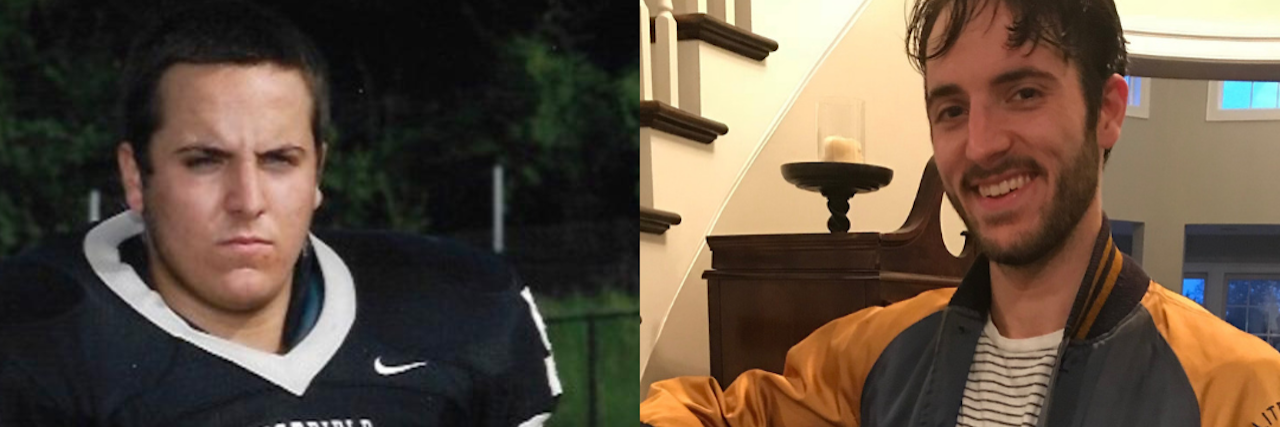How the Expectation for Men to Be Tough Affected My Crohn’s Disease
“Bamm-bamm, bamm-bamm.”
Four-year-old me fell in love with the physical sensation of hitting my head against the floor. The self-induced adrenaline from anticipating contact with the carpet was an intense drug for a toddler. Heightened by the verbal calling, mimicking the character Bamm-Bamm from The Flintstones. I was invincible.
With my parents looking on: “He’s such a tough little guy; look at him banging his head on the floor, and he loves it!”
The toddler years passed. I traded in the air-conditioned, carpet-covered den of our suburban home for a more public arena. With the smell of freshly cut grass slicing through the crisp autumn air, football proposed a more worthy opponent for head clashing: other boys’ helmets.
One commonality. Through head-banging and contact sports, it had been cemented in me as it had in many boys my age: boys are tough.
Boys are tough; boys don’t cry; boys play football. Pain is not something a boy experiences unless he is mortally wounded. Tough it out. Another child of many millions growing up with a gendered brain. Afraid of myself, my own emotions. Afraid of expressing weakness and pain.
We’ve shamed the admittance of pain and idolized toughness in boys. When pain is ignored, there is no language to discuss the experience. Which means we grow up without a language for dealing with pain in a healthy way. Without language to discuss pain, there is a denial of pain. And so the wound continues to fester and as with anything that is ignored, denial catches up with the denier.
Consequently, men in our society act tough but vulnerability and weakness scares them shitless. If we can’t talk about pain, we can’t take it seriously and it will eat us alive.
When I was first diagnosed with Crohn’s disease at age 20, I ignored it. A disease that is mostly invisible remains faceless when there is no frame of reference. I was tough. I didn’t have to face it. I could handle internal pain. Boys are tough, therefore men must be tough. The jabbing pain, the cramps, waking up in the middle of the night; “Just push through it. Ignore it. Deny the pain.”
Ignoring a chronic disease for six years led to complications. It led to scar tissue buildup which led to an obstruction. Ignoring Crohn’s led to an out-of-whack nervous system, completely drained. An immune system on the brink of collapse. It led me to an unhealthy, significant loss of weight and nutrient deficiency in just about every category. It led to dark times.
Young, immortal, unfazed by illness, disease, pain. I never heard other men talk about chronic illness, or autoimmune disease or debilitating pain.
“They must be toughing it out,” I thought.
During my most recent hospital visit, I desperately searched for blog posts from people who had healed themselves from Crohn’s. These stories gave me so much hope in a dire hour. Hope that, if they did it — if they could find a way to heal themselves — then I could too. Even when doctors give Crohnies no hope and have written off any chance of healing, we give ourselves hope.
I’ve decided to share my journey with Crohn’s and chronic illness. It’s part-therapy and part-hopeful — hopeful that someone who needs a stranger’s voice on their side will read these posts and find a language for dealing with this disease. Knowing that strength and toughness doesn’t come from denial but in acceptance, in facing pain and suffering head-on. Without acceptance, we cannot heal.
Photo by A. Xromatik on Unsplash

